Diagnosis of infertility
Infertility can be diagnosed if a woman fails to get pregnant during a year of regular sexual activity with a regular partner.,
Usually in such situations both partners think that the reason lies in the woman. However, in about 40% of cases, the male factor of infertility is diagnosed during the examination.
Therefore, if a couple is faced with the problem of conception, it is very important for both the woman and the man to be examined.
Female infertility
Causes of female infertility
Female infertility can be caused by:
- obstruction of the fallopian tubes. The obstruction may be partial or complete. In many cases, partial tubal infertility is treated surgically.
- endocrine problems. Endocrine infertility accounts for up to 40% of all cases. It can have various forms of manifestation, but there is always one sign that unites all forms – the absence of ovulation. A number of endocrine diseases can lead to a lack of ovulation: polycystic ovary syndrome, depleted ovary syndrome, resistant ovary syndrome, hyperandrogenism, hyperprolactinemia, etc. Endometriosis is a disease in which endometrial foci appear in the ovaries, fallopian tubes, peritoneum, and other organs, including those unrelated to the reproductive system.
- pathologies of the uterus: adhesions, fibroids, polyps, endometritis, etc.
There are other factors that can affect not only conception, but also pregnancy.
Diagnosis of female infertility
An examination is necessary even if a woman has not had problems with conception, gestation, or childbirth in the past.
The first step in the examination is to collect anamnesis and examination. Already at this stage, the doctor may suspect possible health problems: for example, excessive hair loss indicates hormonal disorders.
Further examination for female infertility includes: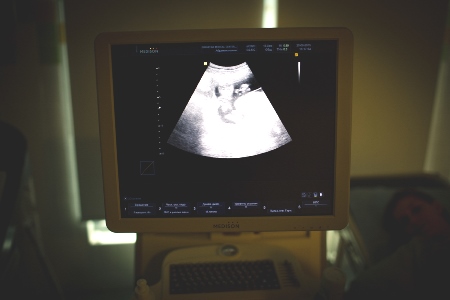

- general blood and urine tests.
- blood tests for hormones: prolactin, FSH, LH, estradiol, etc. To get accurate results, these tests must be taken on certain days of the menstrual cycle.
- STI tests.
- Ultrasound of the small pelvis. Hysterosalpingography is an X–ray examination in which a contrast agent is injected into the uterine cavity and tubes to diagnose the patency of the fallopian tubes. You can also perform ECHO salpingography, when the patency of the fallopian tubes looks under ultrasound control. Hysteroscopy is an examination of the uterine cavity using an optical device, a hysteroscope inserted into the uterus. Laparoscopy is a procedure for examining the pelvic organs using a laparoscope. Laparoscopy can be diagnostic and therapeutic (during such a procedure it is possible not only to identify pathology, but also to remove adhesions, cysts, etc.).
Male infertility
Causes of male infertility
Male infertility can be caused by:
- violation of sperm production in the testicles. For example, there may be very few spermatozoa in the ejaculate, or they may have a morphological pathology – with an incorrectly shaped head or tail.
- obstruction of the vas deferens. In most cases, this problem is successfully solved by surgery.
- hormonal disorders. Problems with conception in men usually occur with low testosterone levels. At the same time, characteristic symptoms appear: decreased libido, muscle weakness, decreased vitality.
- congenital diseases. For example, undescended testicles (cryptorchidism). Even if this anomaly was subsequently eliminated, problems with conception may still arise in the future.
- genetic diseases. One of these is cystic fibrosis, in which, among other things, the patency of the vas deferens is impaired. after undergoing cancer treatment – surgery, radiation, or chemotherapy. previous sexually transmitted diseases (STDs) or inflammation of the genitourinary system. This does not mean that every man who has suffered from such a pathology is faced with infertility. But the risks are increasing. Retrograde ejaculation is a condition in which ejaculate containing spermatozoa is thrown into the bladder at the moment of ejaculation. This is often the case with diabetes mellitus.
- after undergoing surgery in the groin area or external genitalia.
Taking certain medications that negatively affect sperm production can lead to infertility. Other factors include age over 50, mumps (mumps), suffered during puberty, difficulties with erection and/or ejaculation.
Diagnosis of male infertility
Even if a man has a child, it is still necessary to undergo a diagnosis if infertility is suspected. A man may be prescribed an initial examination by a reproductive specialist. If the above risk factors are present, the patient is examined by an andrologist.
Both specialists are receiving appointments at the EMC Clinic for Reproductive and Prenatal Medicine.
After the doctor has collected an anamnesis, the man must undergo a series of studies: 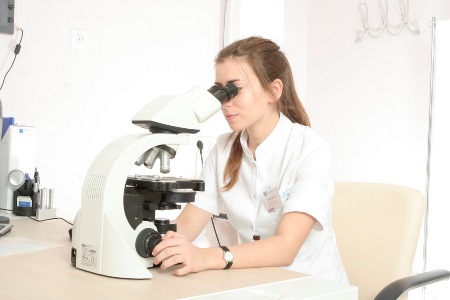

- a spermogram. This study helps the doctor to assess the number, motility, size and shape of the sperm, as well as the volume of the ejaculate. In addition to the spermogram, there are functional tests of spermatozoa that can be prescribed if necessary.
- blood test for hormones. The correct balance of male sex hormones ensures the process of spermatogenesis in the body.
- blood test for the genetic causes of male infertility. Genetic causes are rare, but they are irreversible conditions, so they should not be overlooked.
- ultrasound examination of the genitals. It allows you to identify changes in the internal structure of organs that are not visible to the eye. diagnostic testicular biopsy with cytological and histological examination. In the case of the absolute absence of spermatozoa in the ejaculate, the so-called azoospermia, during the biopsy process, spermatozoa in the testicle can be detected and used in the IVF program.
Visible body changes in male infertility
Some body changes may indicate possible infertility:
-
Varicocele (dilated veins around the testicle) is more common in men with infertility.
undescended testicles, one or both. The testicle does not reach its normal position in the scrotum during development, which leads to subsequent damage to the spermatozoa.
testicular atrophy (reduction of testicle volume).
- penile malformations. Testosterone deficiency can be manifested by a decrease in body hair, low muscle mass, and breast enlargement - gynecomastia.
- overweight. Obesity can reduce testosterone levels and fertility.
How lifestyle affects male and female fertility
Some lifestyle features and living conditions may affect the preservation of reproductive function:
-
alcohol abuse, any type of smoking, taking narcotic drugs, as well as anabolic steroids in combination with heavy physical exertion.
- contact with toxic substances such as pesticides, heavy metals and others.
- the effect of heat on the organs of the scrotum (affects male fertility). Prolonged exposure to high temperatures (hot baths, working near heat sources) can reduce the quality of sperm cells.
Advantages of contacting the EMC
- Doctors with experience in leading clinics in Europe.
- We work according to modern international protocols.
- All conditions have been created at the EMC to diagnose and treat any form of infertility using the most effective methods (IVF, ICSI, IMSI, PIXI, intrauterine insemination, assisted hatching).
- The ART laboratory was created and equipped according to the standards of the American Society of Reproductive Medicine (ASRM).
- Own bank of donor sperm, oocytes and embryos.
- Donor programs (oocytes, spermatozoa, embryos).
Get help
Specify your contacts and we will contact you to clarify the details.
Doctors
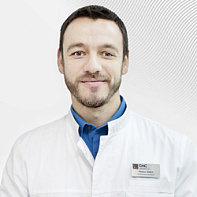
Vladimir Nosov
Ph.D. of Medical Sciences
-
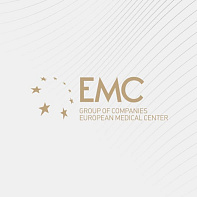
Ron Schonman
Doctor of Medicine
-
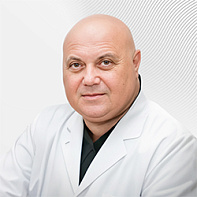
Boris Sakhnovich
Doctor of Medicine
-
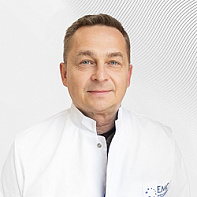
Dmitriy Subbotin
Ph.D. of Medical Sciences
-

Keburija Lela
Ph.D. of Medical Sciences
-
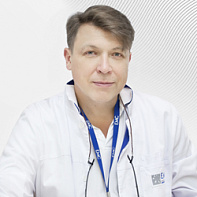
Nenahov Filipp
Doctor of the highest category
-
.jpg)
Mskhalaya Maria
Ph.D. of Medical Sciences
-

Trofimova Angelina
-
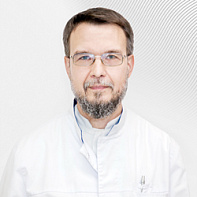
Isaev Dmitry
Ph.D. of Biological Sciences
-
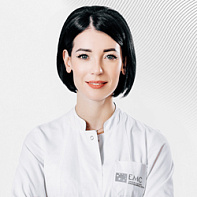
Desyatkova Nina
-
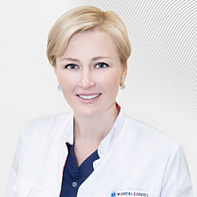
Belousova Nadezhda
-
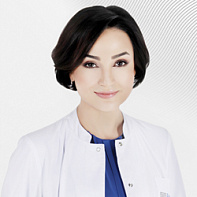
Saakyan Gayane
Doctor of the first category
-
.jpg)
Shpachenko Viktoria
-
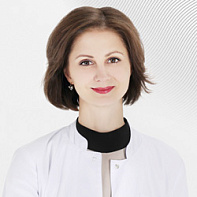
Borovkova Ekaterina
Doctor of the highest category, Professor, Doctor of Medicine
-
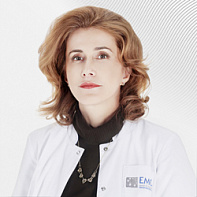
Madan Korneliya
-
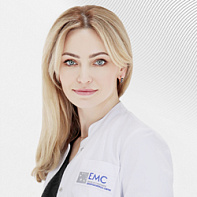
Kovaleva Larisa
Specialist in Gynecological Endocrinology, Ph.D. of Medical Sciences
-
.jpg)
Loginova Olga
Ph.D. of Medical Sciences
-

Charkhifalakyan Arevik
Head of the Gynecology and Oncogynecology Clinic, Ph.D. of Medical Sciences
-
.jpg)
Panfilova Olga
Leading specialist in prenatal fetal diagnosis, Ph.D. of Medical Sciences
-
.jpg)
Yutkin Evgeny
Head of the Embryology Department of the Reproductive and Antenatal Medicine Clinic at the EMC, Ph.D. of Biological Sciences
-
Vladimir Nosov
Ph.D. of Medical Sciences
- An expert oncogynecologist is a surgeon with more than 26 years of experience, including experience working in leading hospitals in the USA
- A leading Russian specialist in the field of robotic surgery in oncogynecology
- Graduated from the Moscow Medical Academy named after I.M. Sechenov
- Graduated from the Moscow Medical Academy named...
Total experience
27 years
Experience in EMC
since 2012




